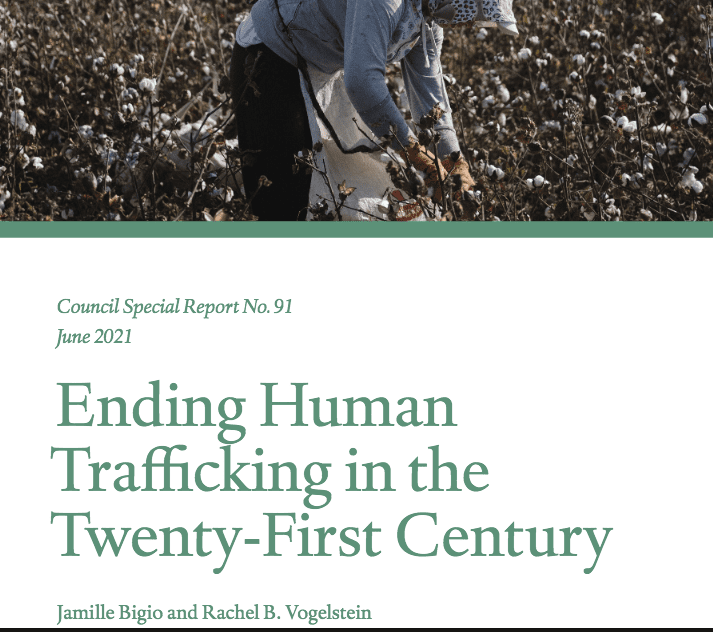
Ending Human Trafficking in the Twenty-First Century
“Human trafficking is more than a violation of human rights: it is also a threat to national security, economic growth, and sustainable development,” warns a new Council Special Report, Ending Human Trafficking in the Twenty-First Century. However, the United States “lacks sufficient authorities and coordination across the federal government to address human trafficking adequately, instead treating this issue as ancillary to broader foreign policy concerns.”
“Critics who challenge the allocation of political and financial capital to combat human trafficking underestimate trafficking’s role in bolstering abusive regimes and criminal, terrorist, and armed groups; weakening global supply chains; fueling corruption; and undermining good governance,” write Council on Foreign Relations (CFR) Senior Fellows Jamille Bigio and Rachel B. Vogelstein. Trafficking generates $150 billion in illicit profits, and “an estimated twenty-five million people worldwide are victims—a number only growing in the face of vulnerabilities fueled by the COVID-19 pandemic.”
Despite efforts by multilateral institutions and governments around the world, the authors explain that “anti-trafficking efforts are undermined by insufficient authorities, weak enforcement, limited investment, and inadequate data.”
To address these gaps, the Joe Biden administration “should lead on the global stage . . . by strengthening institutional authorities and coordination, improving accountability, increasing resources, and expanding evidence and data,” the authors contend. Specifically, it should
- “enact due diligence reforms to promote corporate accountability for forced labor in supply chains,” including by expanding the U.S. National Action Plan to Combat Human Trafficking;
- “reform labor recruitment systems to combat the exploitation of migrant workers”;
Read more here.
